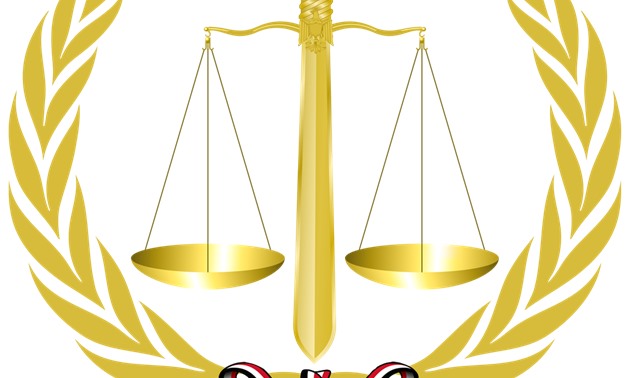
An icon for Egyptian law- CC via Wikimedia
CAIRO – 7 February 2019: Egypt’s Judges’ Club, one of the highest judicial bodies in the country, denied media remarks concerning the new amendments to the 2014 Constitution.
As per the constitutional amendments, the presidential term would be extended for 6 years instead of 4 years and heads of the judicial bodies would be appointed by the president.
“The club did not issue any media statements concerning the proposed constitutional amendments at the House of Representatives,” said spokesperson of the Judges’ Club Reda Mahmoud al-Sayed in a statement on Thursday.
Arabic-language Al-Ahaly gate
on Thursday that the Judges’ Club had issued a statement in which it voiced its reservation, saying “the amendments violate the judicial independency.”
One fifth of parliament members submitted a proposal to conduct constitutional amendments in line with Article 226 of the constitution and Article 140 of Parliament’s internal by-laws. They asked for extending the presidential term to six years from four, “as the current circumstances have proven the step essential,” according to a statement issued by the Parliament on February 3, 2019. The amendments also tackle appointing the heads of judicial bodies by the president.
In 2017, the Parliament has enacted a
that broadens President Abdel Fatah al-Sisi’s power to appoint the heads of the judicial bodies. So, the constitutional amendments will include an article concerning judicial appointment by the president to constitutionalize the law.
The proposed amendments also include restoring Shura Council – a senate- to broaden representation at the Parliamentary Councils- after it was dissolved in 2012. The appointment of deputy president is also one of the amendments. Supporting women, Youth, Christian minority, the disabled, and the Egyptian expatriates community by solid constitutional articles are included in the amendments.
One of the amendments stipulates, “The Armed Forces are the guarantor of the democracy and civil state, and the appointment way of defense minister should be reconsidered.”
“A coordination council headed by the president would organize the posts inside all the judicial entities,” another amendment provides.
On December 23, 2018, President Sisi met with the members of the Council of the Judicial Bodies, according to a statement from the Egyptian presidency. “He [the president] expressed his keenness to consolidate the rule of law in accordance with the Constitution, which established the principles of separation of powers […] and respect for the independence of the judiciary and the preservation of its sanctity,” the statement read.
Although many political experts and politicians said that the new amendments are essential for Egypt’s current development program, many critic voices expressed objection as such amendments contradict with freedom principles.
Comments
Leave a Comment